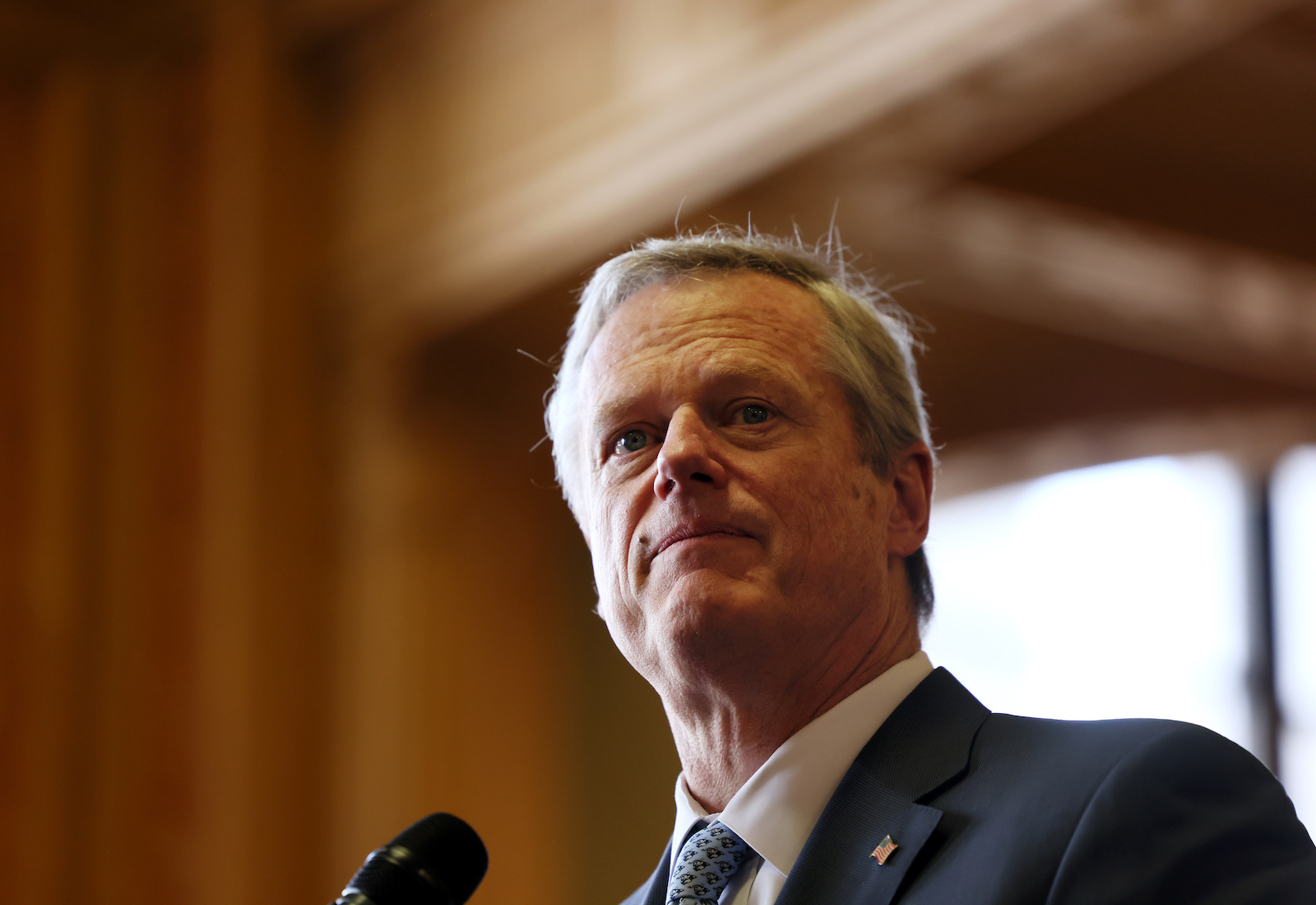Massachusetts’ Republican governor, Charlie Baker, signed a sweeping climate and energy bill into law on Thursday, approving an array of policies intended to advance the state’s goal of reaching net-zero greenhouse gas emissions by 2050.
As the law’s name suggests, “An Act Driving Clean Energy and Offshore Wind” includes significant provisions to boost the development of offshore wind, such as granting access to state funds. The law requires that the state’s electric utilities procure 5,600 megawatts of new offshore wind capacity by 2027, up from a former goal of 4,000 megawatts. It also removes a controversial price cap that required every new wind project to offer cheaper electricity than the previous one — a mechanism that critics argued was stifling economic development.
Other parts of the bill shore up the electric grid, decarbonize the Boston-area transit system by 2040, and require all new cars sold in Massachusetts to be zero-emissions by 2035.
Among the bill’s most contentious elements is a section that makes it legal for 10 municipalities to ban fossil fuel-powered appliances in new buildings. Although these bans are common in cities across the West Coast, attempts by Massachusetts cities to follow suit have been blocked by a law that empowers a state board to make most decisions about buildings’ energy use.
This is the part of the climate bill that almost sank it. Baker repeatedly expressed concerns that banning fossil fuel heating would amount to “exclusionary zoning,” limiting cities’ ability to build affordable housing. “That part of the bill gives me agita,” he told reporters earlier this week.
Baker ultimately signed the bill, in part because he valued the clean energy advancements and sustainable jobs it would create for Massachusetts. He may also have been swayed by stipulations included in the final legislation, including a requirement that cities meet affordable housing quotas before they can ban fossil fuel infrastructure in new buildings. The law also precludes life sciences labs and health care facilities from being affected by bans.
David Mendels, a co-founder of the advocacy group ZeroCarbonMA, said that seven municipalities — including Cambridge, Concord, and Brookline, whose 2019 bylaw made it the first community on the East Coast to ban gas hookups in new construction before the state struck the law down — meet the affordable housing stipulations and are ready to move forward with their fossil fuel heating bans. The other three cities may soon follow, and even more cities could apply for eligibility to do the same. He added, however, that new construction only accounts for a small percentage of Massachusetts’ housing stock, and that additional policies are needed to replace gas-powered appliances and heating systems in existing buildings.

“Retrofits are harder,” Mendels told Grist. “They’re going to require more incentives and legislation.” For example, the state could bolster existing programs like Mass Save, which offers rebates for Massachusetts residents who install electric heat pumps in their homes.
He and others have cheered the overall legislation as a major victory for the climate movement. Cynthia Creem, a state senator representing parts of Newton, Wellesley, and Brookline, said in a tweet that activists should “draw hope from the passage of this landmark law.” Jeffrey N. Roy, a Democratic state representative, tweeted that it was “a big f****ing deal.”
Besides legalizing municipal gas bans, the bill allows Massachuestts to jointly bid with Maine, Rhode Island, and other New England states on renewable energy infrastructure, paving the way for projects that could, for example, connect big wind farms in one state to the electric grid in another. The law also excludes wood-burning power plants from the state’s renewable energy portfolio standard, making them ineligible for clean energy subsidies. Research suggests that these biomass facilities can in some cases emit more carbon dioxide than coal-fired power plants.
Although the bill promises a lot, it doesn’t include funding for many of its initiatives. That’s because legislators didn’t want to put forward a bill with spending proposals, which the governor is allowed to veto line by line. Lawmakers are instead banking on funding the provisions in the climate bill with a separate, $4.5 billion economic development act, which still has to be finalized by the House and Senate.
In an interview with the Boston Globe, the governor said he was optimistic that the funding bill would be enacted and the climate programs put into place. In a tweet thread posted shortly after signing the bill, Baker — who has announced he is not running for reelection in November — recapped the environmental achievements of his tenure. “Since taking office in 2015, we have worked hard to ensure MA is a national leader in combating climate change,” he wrote. “I am proud to have supported the Commonwealth’s leadership on these critical issues to preserve our climate and our communities for future generations.”



